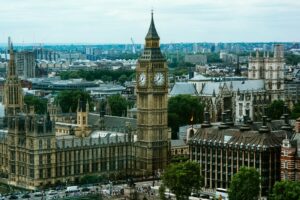 Spending £100 on a bottle of wine, owning a horse, sending your children to private education and having offshore investments are all indicators of wealth – but the public is undecided on whether these displays of wealth are ‘deserved’.
Spending £100 on a bottle of wine, owning a horse, sending your children to private education and having offshore investments are all indicators of wealth – but the public is undecided on whether these displays of wealth are ‘deserved’.
The study, by academics at Loughborough and Birmingham universities and the London School of Economics and Political Science (LSE), asked the public in London what kinds of goods and services represent a wealthy lifestyle.
They were also asked if they thought there was a point beyond which wealth becomes excessive, with many saying that it was not easy to judge whether in a particular case someone did or didn’t deserve their wealth, saying that it depended on how people had acquired their fortune and how they chose to use it.
The participants, however, say that people with lots of money had a duty to improve society and help those less fortunate.
Researchers hope the findings will influence policies that tackle inequality.
The report, Living on Different Incomes in London: Can public consensus identify a ‘riches line’?, was commissioned by the poverty and inequality charity, Trust for London.
Participants also pointed to non-material advantages of wealth, such as security, power and influence, and freedom of choice.
Participants said if you are ‘securely comfortable’, you can afford to do your weekly shop at Marks and Spencer, have a financial adviser and go on skiing holidays.
Lead researcher Abigail Davis, of the Centre for Research in Social Policy (CRSP), at Loughborough, said: ‘Understanding these multiple dimensions of attitudes towards wealth and riches is crucial for developing policies that tackle poverty and inequality but work with the grain of the aspirations and perceptions of members of the general public.
‘There is much public and political discourse around economic inequality.
‘But while there is a substantial body of research about attitudes towards, and definitions of, poverty, there is relatively little research about the other end of the spectrum.
‘Just as there is a “poverty line”, we wanted to find out if there is an identifiable “riches line”, and what it means for society as a whole for individuals to have very high income or wealth.’
Tania Burchardt, Director of the Centre for Analysis of Social Exclusion (CASE) at LSE and a co-researcher on the project, added: ‘A closer examination of these attitudes could hold clues to whether certain ways to frame proposals for redistribution might be more widely acceptable than others.
‘While the groups in our research were able to find a broad consensus on standards of living well above the minimum, including the wealthy at the top and the super-rich at the very top, they found it much harder to identify and agree on a point beyond which greater resources could be considered excessive.’












Leave a Reply